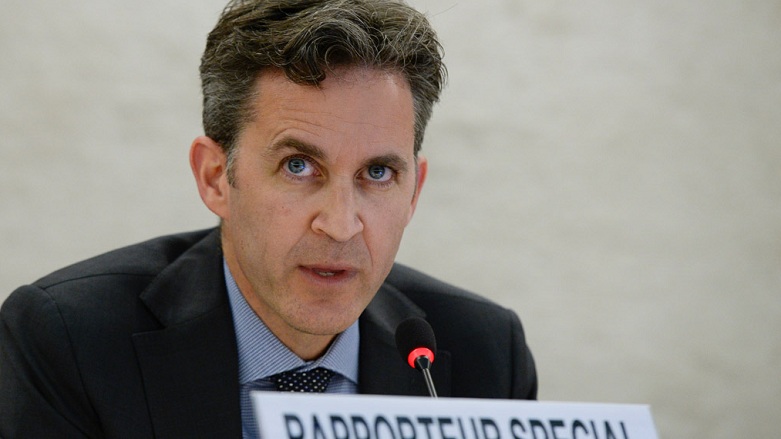Turkey imposing 'draconian measures' on media, freedom of expression: UN

ERBIL, Kurdistan Region (Kurdistan24) – The Turkish Government was imposing ‘draconian measures’ on media and freedom of expression that eroded independent opinion, according to a recent United Nations report which drew a grim picture of the state of affairs in the country.
The Friday-released report penned by the UN Special Rapporteur on the right to freedom of opinion and expression David Kaye said the scope of a crackdown on media freedom intensified dramatically since the botched July 15 military coup attempt.
Kaye, who was on a week-long official mission to Turkey, drew attention to “attacks” by Turkish authorities on the freedom of expression of Kurdish artists, media outlets, and academics.
“Of particular concern is the apparent decimation of all forms of media in the southeast, particularly Kurdish media, leading to a massive lack of access to information,” said Kaye.
Moreover, the UN official was also critical of blanket Internet outages in the Kurdish provinces.
The blocking of news websites and individual social media accounts increased, “with Twitter reportedly complying with requests to withhold Kurdish media Twitter accounts in Turkey, including that of the Kurdish daily newspaper Ozgur Gundem,” read the UN report.
The Turkish Government acting on executive decrees ordered the shutdown of scores of newspapers, magazines, television, and radio channels critical of or in opposition to the ruling party.
At least 3,000 journalists have been left unemployed, and hundreds of yellow press cards have been canceled by Turkish authorities who raise national security concerns.
“Yet the unjustified attacks on lawyers, judges, journalists, artists, academics, and activists undermine security and generate polarization and long-term instability,” continued the UN rapporteur.
The number of jailed journalists and media workers imprisoned in Turkey was up to 155.
Kaye met with five of the imprisoned journalists, affiliated with the secularist Cumhuriyet newspaper, but was denied access to eight other writers and journalists.
Among them the novelist Asli Erdogan who was being charged with supporting the Kurdistan Workers’ Party (PKK) for voluntarily editing the now-closed Ozgur Gundem.
Kaye called on the Government “in the strongest possible terms to immediately release” all those held in prison for exercising their rights to freedom of opinion and expression.
Editing by Karzan Sulaivany
